Home » Articles posted by Veronica Sjöholm
Author Archives: Veronica Sjöholm
Oral presentation on “Biomechanics” in a mixed session

Florentina Hettinga & Vesa Linnamo
We would like to welcome you to a varied session on biomechanics. On the last day of the ECSS conference the session, chaired by Florentina Hettinga (University of Essex) and Vesa Linnamo (University of Jyvaskyla), will nicely demonstrate how biomechanical studies can be crucial to exploring relevant topics in Sports Science. Topics such as pacing behaviour (Schoenmakers et al), energy cost of stair climbing (Halder et al) and motor unit recruitment after muscle damage (MacGregor) will be discussed.
The first speaker is Patrick Schoenmakers (University of Essex) who will determine the relation between mechanical power output and velocity of the Velotron cycling ergometer. As this relationship is non-linear in actual outdoor time trial performance and affects the choice of the optimal pacing strategy, it is important to incorporate this aspect in time-trial studies exploring pacing behaviour. The second speaker is Amitava Halder (Lund University). The purpose of this study was to determine the relationship of muscle activity to the oxygen uptake and the development of leg muscle fatigue from real stair climbing activities. Which is particularly relevant in the context of studying emergency situations, where many flights of stairs might need to be covered. The third and last speaker is Lewis MacGregor (University of Stirling). The final lecture of this session will explore exercise-induced muscle damage, associated with unaccustomed exercise and eccentric muscle contractions, which will potentially affect motor unit recruitment strategies.
The plenary session [OP-BN09] Biomechanics – Mixed session will start 10:20 Saturday 27th June in Lecture room “Live 8”
Post by Florentina J Hettinga
University of Essex, United Kingdom
The congress has officially been opened!
Welcome all delegates to the 20th European College of Sport Science Congress in Malmö. We hope that you will enjoy your stay in Malmö and that you find the program of ECSS enjoyable.
Yesterday we started of with a few Satellite symposia and Workshops, rooms were crowded and the response was great. We hope you found it as thrilling as we did.
At 10:00 we had a press conference with the two Congress Presidents Aage Radmann and Susanna Hedenborg, the President of ECSS Marco Narici, Chairman of the Center for Sports Research Per Nilsson, CEO & General Manager of Clarion Hotel & Congress Malmö Live Jens Lyckman, Director of Tourism – City of Malmö Johan Hermansson and as moderator Professor Gisela Sjøgaard. Meanwhile, the venue was starting to fill up and the exhibition area was opened.

Press conference
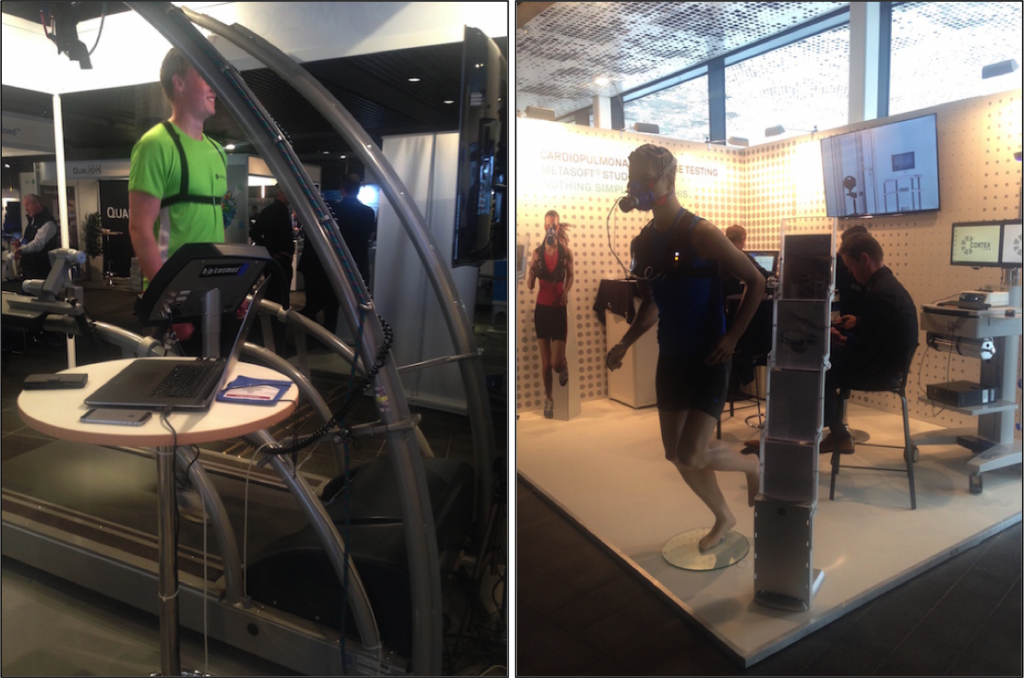
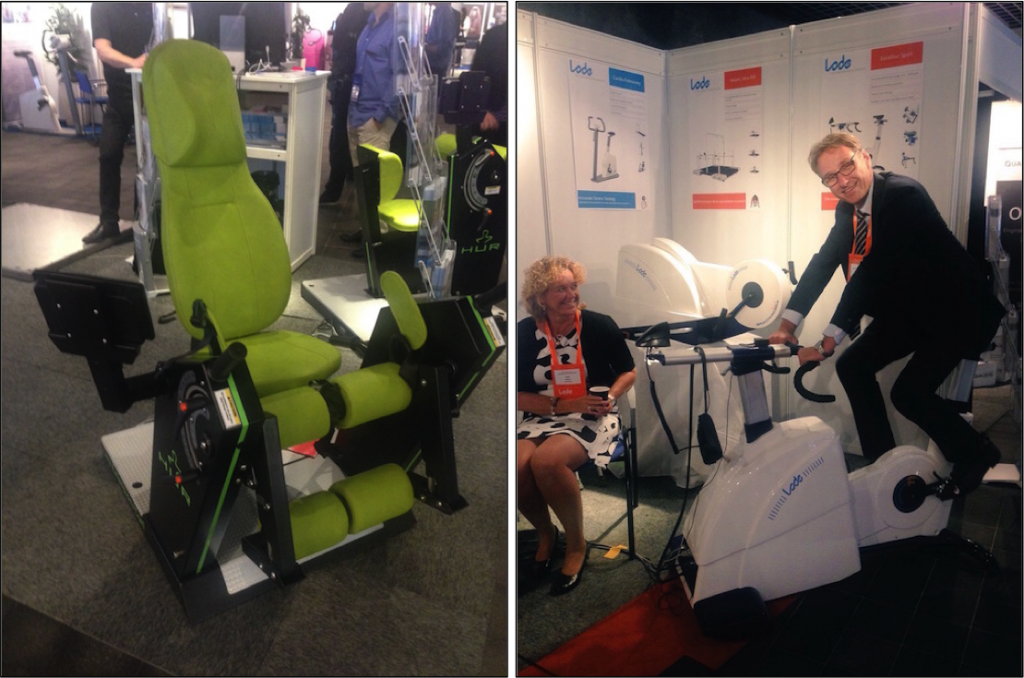 After lunch the invited sessions, oral and mini-oral presentations started and yet again the rooms were packed. A lot of interesting topics were discussed and plenty of questions were being asked so all the great speakers had to be on their toes, which led to very good discussions.
After lunch the invited sessions, oral and mini-oral presentations started and yet again the rooms were packed. A lot of interesting topics were discussed and plenty of questions were being asked so all the great speakers had to be on their toes, which led to very good discussions.

Our volunteers are doing a fantastic job!
In the amazing lecture room High Live 1 the Bengt Saltin tribute symposium has held to honor Bengt Saltin who very sadly past away last year. We had speakers who talked very nicely about Bengt Saltin as a person and also about some of his admirable researches.
The first day of the congress ended with an amazing opening ceremony and an opening reception. What a show – What a venue! The atmosphere in the opening reception was great and we don´t think the day could ended any better.

The Concert Hall was almost filled up when the show started.

Congress Presidents Susanna Hedenborg & Aage Radmann

Great atmosphere at the Opening reception
We hope you’ll enjoy the rest of the congress!
Please follow us on Twitter for the latest updates during the Congress. @ECSS2015 #ECSS2015 #ECSS20th
ECSS 20th anniversary program for social & physical activities

For those of you who haven’t yet seen the additional social and physical activities for the ECSS Congress in Malmö, please enjoy!
The hosts of the ECSS Congress in Malmö 2015 invites you to take part in the ECSS 20th Anniversary Program of Social & Physical Activities. Several times a day there is a chance to meet up, do some physical activities and socialize.
Thursday 25th
07:00 Historical Malmö – a Guided Tour
Have an early morning walk and enjoy a guided tour of historical Malmö. Limited number of participants (30) – sign up here! Meet up here.
18:00 Gerilla Run Ribban
Meet Malmö Gerilla Runners – and have a run with them (5 or 10 k)! Malmö Gerilla Runners is an open and informal group in Malmö that gets together to run. Free and open for all. Meet up here.
20:00 The Boule Bar Experience
Play some Boule, have a drink, chat, enjoy life… (You pay for your own drinks, food and bouleplaying). Meet up here.
20:00 ECSS 20th Anniversary Dinner
The City of Malmö is inviting the ECSS to a dinner at the Malmö City Hall. Invitation only. Read more here. Meet up here.
 Friday 26th
Friday 26th
07:00 Bengt Saltin Run
In memory of Bengt Saltin we will have a timed 5k running race in the Pildammarna Park. Limited number of participants (250) – sign up here! Meet up here.
17:00 Sporting Women of Malmö
Enjoy an walk through Malmö while taking part in the guided tour of Sporting Women of Malmö. Limited number of participants (30) – sign up here! Meet up here.
20:00 Friday Night Out
Enough with the exercise, lets just chill out… Or you haven’t had enough? – Go dancing! (You pay for yourself). Read more here. Meet up here.
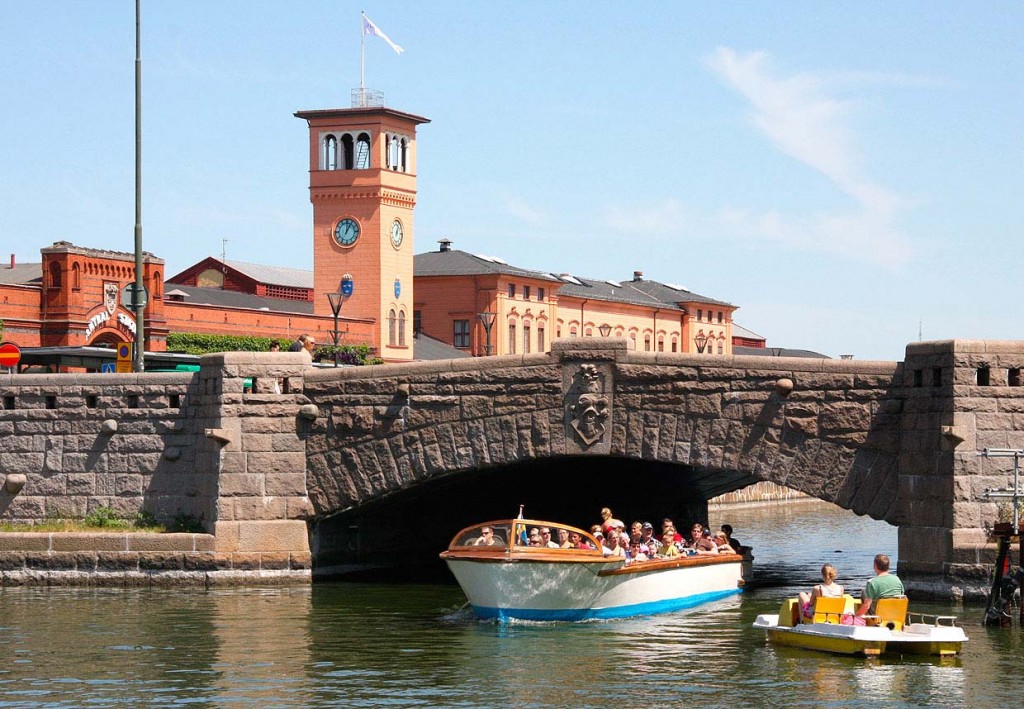 Saturday 27th
Saturday 27th
07:00 Rejuvenating Yoga
Feeling drained and fatigued? Get you mojo back working order with some meditative Yoga. Limited number of participants (40) – sign up here! Meet up here.
15:00 Malmö by Boat – a Guided Tour on the Canal
Recharge your energy – go on a guided boat-ride through Malmö, the Green City. Limited number of participants (60) – sign up here! (You pay for yourself, in cash, on site, 10 €). Meet up here.
20:00 Party in the Peoples Park
The Congress will round off with a party in the beautiful Folkets Park (The People’s Park). Here, we socialize, enjoy the great atmosphere of the congress – and party! Read more here. Meet up here.
BEFORE & AFTER
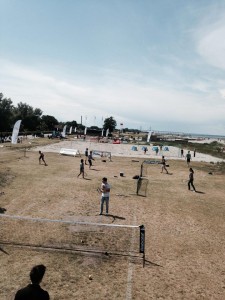 Wednesday 24th & Sunday 28th
Wednesday 24th & Sunday 28th
09:00 Summer on Ribban
Arriving early or leaving late? Then you can take part in Summer on Ribban. Every summer the City and its sports clubs arrange sporting activities for all by the beach. Read more here. Meet up here.
Welcome!
Questions about the social programme? Please contact: Mikaela, mikaela.farnqvist@mah.se, or Joakim, joakim.akesson@mah.se.
Join the guided tour about ”Sporting Women of Malmö“
Right in the heart of Malmö, near Triangeln and Pildammsparken, at the venerable Malmö IP (“Malmö Sports Field”) we’ll start the walk that focuses on women’s sports and sporting in the city. The walk could be done anywhere in and outside the city; women’s sporting and physical activity is far from an isolated phenomenon. And strangely enough, despite decades of gender-politics and activism, it seems necessary to draw attention to women in sports. The reason is that sport, just like the rest of society, is characterized by male superiority and the subordination of women.

Photo: Urszula Striner
The women’s football team FC Rosengård plays their home matches at Malmö IP. The team wins the Swedish top league, and aims to win the Women’s Champions League, almost every season. It offers world-class player as Mittag, Sjögran, Bachman and Marta. Ten years ago, the club name was Malmö FF Women, then LdB FC and now FC Rosengård. All these name changes have have a gender dimension: the economic subordination of women’s football, which forced the changes.
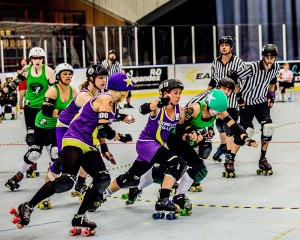 Across the street we’ll find the old Tennis Hall, which now holds roller derby, a contact sport on roller skates that’s played exclusively by women. The sport originates from USA and the banked-track roller skating marathons of the 1930s. It was revived after languishing in the early 2000s. Some say that roller derby is part of contemporary feminist activism, although there are some male clubs in the US. In Malmö, there are two roller derby clubs.
Across the street we’ll find the old Tennis Hall, which now holds roller derby, a contact sport on roller skates that’s played exclusively by women. The sport originates from USA and the banked-track roller skating marathons of the 1930s. It was revived after languishing in the early 2000s. Some say that roller derby is part of contemporary feminist activism, although there are some male clubs in the US. In Malmö, there are two roller derby clubs.
 For our last stop we visit Pildammsparken and one of the two outdoor gyms that have been there for a few years. For women, taking place in public areas is a known problem – outdoor gyms and other spontaneous sites are no exceptions. Boys and men do take place, and they take places in possession. This is not acceptable and we need change! What can the various stakeholders contribute with, as future public spaces for sport and exercise are planned and constructed?
For our last stop we visit Pildammsparken and one of the two outdoor gyms that have been there for a few years. For women, taking place in public areas is a known problem – outdoor gyms and other spontaneous sites are no exceptions. Boys and men do take place, and they take places in possession. This is not acceptable and we need change! What can the various stakeholders contribute with, as future public spaces for sport and exercise are planned and constructed?
This walk is intended to provide knowledge of women’s sporting and physical activity in the city, but also to provoke thoughts about various aspects of women’s bodies, economic, social and cultural conditions, and terms and conditions of women’s sports.
Register for the guided tour here. Limited number of participants!
There are two meetingpoints, 16:30 outside Malmö Live or at the square infront of Malmö Opera, here, at 17:00.
The courtesy cars have arrived, sponsored by Lexus Malmö
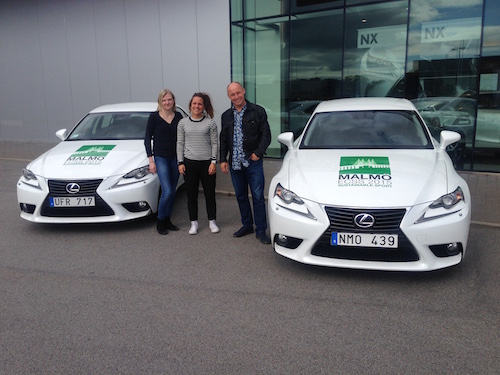
It’s one week to go before this year’s ECSS congress starts in Malmö, and we’re all are working on the final preparations. This week we had the pleasure to pick up three courtesy cars sponsored by Lexus Malmö. Lexus cars profile themselves as eco-cars, which fits well into the Malmö congress Sustainable Sport theme.
Lexus believes that it is their duty and obligation to take the lead in the automobile industry’s environmental challenges. They believe that environmental sustainability is the single biggest challenge in this century, both for their own industry and for society at large. Lexus means that their response to this challenge affects not only their own cars, but every aspect of their business and every individual in their business.
You’re very welcome to have a look at, and perhaps a ride in, the cars during your stay at the congress.
Find more information about Lexus Malmö here

Invited session on “Rate of force development: new ideas on measurement, mechanisms and trainability”
 Skeletal muscles are the motors of the neuromuscular system, and act to stiffen and change position of the joints and levers of the skeleton. Their ability to actively shorten and produce tension therefore underpins the capability to complete any form of movement. In some situations (e.g. explosive athletic events; stabilisation following a mechanical perturbation) the ability of muscles to rapidly produce force within a limited time frame is critical to movement success. This means that improving the rate of force development is often a primary target in clinical and exercise/sporting programmes. The development of strategies that facilitate the achievement of such a target requires understanding of physiological factors which influence the rate and trainability of force development, as well as the development of appropriate methods of reliably measuring explosive strength.
Skeletal muscles are the motors of the neuromuscular system, and act to stiffen and change position of the joints and levers of the skeleton. Their ability to actively shorten and produce tension therefore underpins the capability to complete any form of movement. In some situations (e.g. explosive athletic events; stabilisation following a mechanical perturbation) the ability of muscles to rapidly produce force within a limited time frame is critical to movement success. This means that improving the rate of force development is often a primary target in clinical and exercise/sporting programmes. The development of strategies that facilitate the achievement of such a target requires understanding of physiological factors which influence the rate and trainability of force development, as well as the development of appropriate methods of reliably measuring explosive strength.
At the upcoming 20th Annual ECSS Congress (Malmö, 24th – 27th June) an international panel of experts will present work exploring the latest advances in current understanding of the development of explosive strength. The presented research will consider the functional relevance of measuring dynamic explosive strength and the challenges that may confound its measurement. The effects of training on the key factors influencing rate of force development will also be described and considered within the context of developing a hypothesis-driven approach for improving this feature in different populations (e.g. clinical, elderly, child, injured). In addition, proposals for future research to elucidate the relative influence of factors such as muscle anatomy and neuromuscular transmission efficiency on rate of force development will be made.

Jonathan Folland, Anthony J Blazevich, Nicola A. Maffiuletti
The first speaker in the session will be Jonathan Folland, Loughborough University, UK, who will discuss measurement and functional relevance of explosive muscle strength. This talk will be followed by a presentation from Anthony Blazevich, Edith Cowan University, Australia, who will discuss neuromuscular factors that influence rate of force development. The session will be completed by Nicola Maffiuletti, Schulthess Clinic, Switzerland, who will consider the influence of acute exercise and chronic physical training on rates of force development.
We hope the session will provide an opportunity for researchers, clinicians and coaches to consider fundamental mechanisms which may determine rapid force development rates, the application of this understanding to a training environment, and methods through which reliable assessment of this parameter may be achieved.
The invited session [IS-BN09] Rate of force development: new ideas on measurement, mechanisms and trainability will start 10:20 Thursday 25th June in Lecture room ”Live 1”.
Post by Emma Hodson-Tole
Manchester Metropolitan University
United Kingdom
Three host institutions taking on the ECSS 2015 Congress in Malmö
In only a week from today people from all over the world will be arriving to the ECSS 2015 Congress, and we are proud to welcome you to Malmö. This year’s congress will be hosted by three great universities from the Öresund region, Malmö University, Lund University and University of Copenhagen.
 Malmö University
Malmö University
Malmö University was founded in 1998 and is a young, modern and international university. It has about 25,000 students and offers undergraduate and postgraduate education. Malmö University’s mission is to be an active hub for research, education, and innovation that benefits the global society. Education and research at Malmö University is aligned with and focused on the major challenges in contemporary society. Hence, research is often multidisciplinary and frequently pursued in collaboration with partners from outside the university.
 Lund University
Lund University
Lund University has a long and vibrant history covering almost 350 years of teaching. It has evolved from just a few hundred students and professors being paid with meat and grain into its present form, with around 47,000 students and a international position of excellence in teaching and research. The University is organised into eight faculties as well as many departments, schools and research centres. The University has three campuses located in the cities of Lund, Helsingborg and Malmö, all in southern Sweden.
&nbsk;
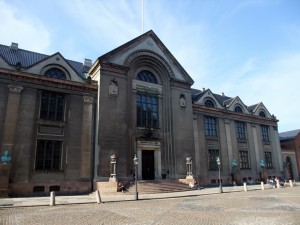 University of Copenhagen
University of Copenhagen
With over 38,000 students and more than 9,000 employees, the University of Copenhagen is the largest institution for research and education in Denmark. The purpose of the University – to quote the University Statute – is to ‘conduct research and provide further education at the highest academic level’. Approximately one hundred different institutes, departments, laboratories, centres, museums, etc., form the nucleus of the University, where professors, lecturers and other academic staff, as well as most of the technical and administrative personnel, carry out their daily work, and where teaching takes place. These activities can be found in various environments ranging from the plant world of the Botanical Gardens, through high-tech laboratories and auditoriums, to the historic buildings and lecture rooms of Frue Plads and other locations.
See you soon in Malmö!
Let’s celebrate the 20th ECSS Congress together at Moriska Paviljongen in Folkets Park

Don’t forget to bring your party shoes to Malmö! Together we are going to round of the 20th Congress with a spectacular party. The ECSS Congress party will take place at Moriska Paviljongen in Folkets Park, “The People’s Park”. Moriska Paviljongen was built 110 years ago and is one of Malmö’s most famous and beloved buildings. The venue is constantly used for events, galas, parties and congresses.
 We are not only going to celebrate an amazing congress held at Malmö Live congress center, some newfound friendships and a great time in Malmö, we are also delighted to be able to celebrate 20 years of sport science under the umbrella of the European College of Sport Science. Let’s celebrate the ever-important development of knowledge and the opportunity to share it with each other!
We are not only going to celebrate an amazing congress held at Malmö Live congress center, some newfound friendships and a great time in Malmö, we are also delighted to be able to celebrate 20 years of sport science under the umbrella of the European College of Sport Science. Let’s celebrate the ever-important development of knowledge and the opportunity to share it with each other!
Saturday, June 27th 2015 will be a night to remember! Make sure to pre-book your tickets beforehand through your ECSS account. Limited capacity only. Tickets are free of charge.
The doors will open at 19:30 for all congress delegates and for the general public at 22:30.
So, bring your dancing shoes and show us your best moves on the dance floor!
Find more information about Moriska Paviljongen here.
Invited session on ”Sport expertise: putting brain, body, and environment together again“
In this symposium we discuss how brain, body and environment can come together to explain expertise in sport. From an ecological dynamics approach, the performer-environment relationship forms the basis for understanding the development of expertise. Performers are conceptualised as complex, neurobiological systems, which are continuously changing over different timescales. In such systems, inherent self-organisation tendencies lead to the emergence of adaptive behaviours under a range of interacting task and environmental constraints. Intentions, perceptions and actions are intertwined processes, which underpin the functional movement solutions assembled by each learner during the development of expertise.

During learning, the role of movement pattern variability is fundamental in supporting the exploratory behaviours needed to seek and establish functional movement solutions by each individual performer. In this region the performer does not act in a manner that is either completely independent or completely dependent on the environment. Rather, she functions in a state of relative coordination with the performance environment and task. Since the dynamic nature of changing task constraints in sports cannot be predicted in advance, these ideas imply that talent programmes should focus on developing circumstances for expert performance rather than attempting to identify expert performers.
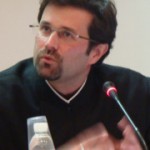
Duarte Araújo
The first speaker Professor Duarte Araújo from University of Lisbon, Portugal, will highlight innovative measurement tools, which might be used in research and practice to capture the emergence of coordinated behaviours in sports teams, based on the formation of interpersonal synergies between players resulting from collective actions predicated on shared affordances. These tools are suitable to reveal the idiosyncratic collective behaviours of sports teams, particularly their coordination of effort and the more frequent patterns of communication and interactions between team players.

Paola Cesari
The second speaker, Professor Paola Cesari, University of Verona, Italy, will present several experiments showing the exceptional ability that basketball and soccer players along with professional dancers have in pre-programming and in anticipating the actions in which they excel. An elite athlete needs the ability to predict and anticipate the behavior of other players. Paola Cesari proposes that by observing others’ actions one may imply a covert simulation of the very same action, a process likely crucial in both imitative and non-imitative motor learning.

Ludovic Seifert
The third speaker, Professor Ludovic Seifert from University of Rouen, France, will identify key properties of expertise in sport predicated on the performer-environment relationship. Key properties of expert movement systems include multi- and meta-stability, adaptive variability, degeneracy and the attunement to affordances. These key properties signify that, in sport performance, although basic movement patterns need to be acquired by developing athletes, there exists no ideal movement template towards which all learners should aspire, since relatively unique functional movement solutions emerge from the interaction of key constraints. In this talk, key properties of expertise are exemplified in swimming and climbing.
The invited session [IS-BN02] Sport expertise: putting brain, body, and environment together again will start 10:20 Friday 26th June in Lecture room “High Live 4”
Post by Paola Cesari
University of Verona, Italy
Plenary session on ”Exercise, energy intake, brain health and well-being“
This session will present an overview of the evidence on the influence of exercise and caloric intake on brain function, neural and muscular system integrity, vulnerability to injury and disease prevention and their impact on well-being.

Mark Mattson & Janice Thompson
Two eminent speakers will take part in this session: Professor Mark Mattson, and Professor Janice Thompson.
Mark Mattson is Chief of the Laboratory of Neurosciences at the National Institute of Aging and also Chief of Dept of Neuroscience at the Johns Hopkins University School of Medicine, Baltimore, MD. He is a leader in the area of cellular and molecular research into neuronal plasticity and neurodegenerative disorders, and he has made major contributions to the understanding of the pathogenesis of Alzheimer’s disease and to its prevention and treatment.
Janice Thompson from the School of Sport, Exercise and Rehabilitation Sciences, University of Birmingham, UK, is a leading expert in the field of public health, nutrition and exercise, and their role in preventing risk of obesity, cardiovascular disease and type 2 diabetes across the lifespan.
The topics of this session are extremely relevant for emphasising the importance of lifestyle on population health and for disease prevention in the light of the marked increase in obesity and inactivity among the young and adult population, and also with respect to the increased proportion of elderly individuals in the world population.
The plenary session [PS-PL03] Exercise, energy intake, brain health and well-being will start 12:00 Friday 26th June in Lecture room ”High Live 1”.
Post by Marco Narici
University of Nottingham, United Kingdom




